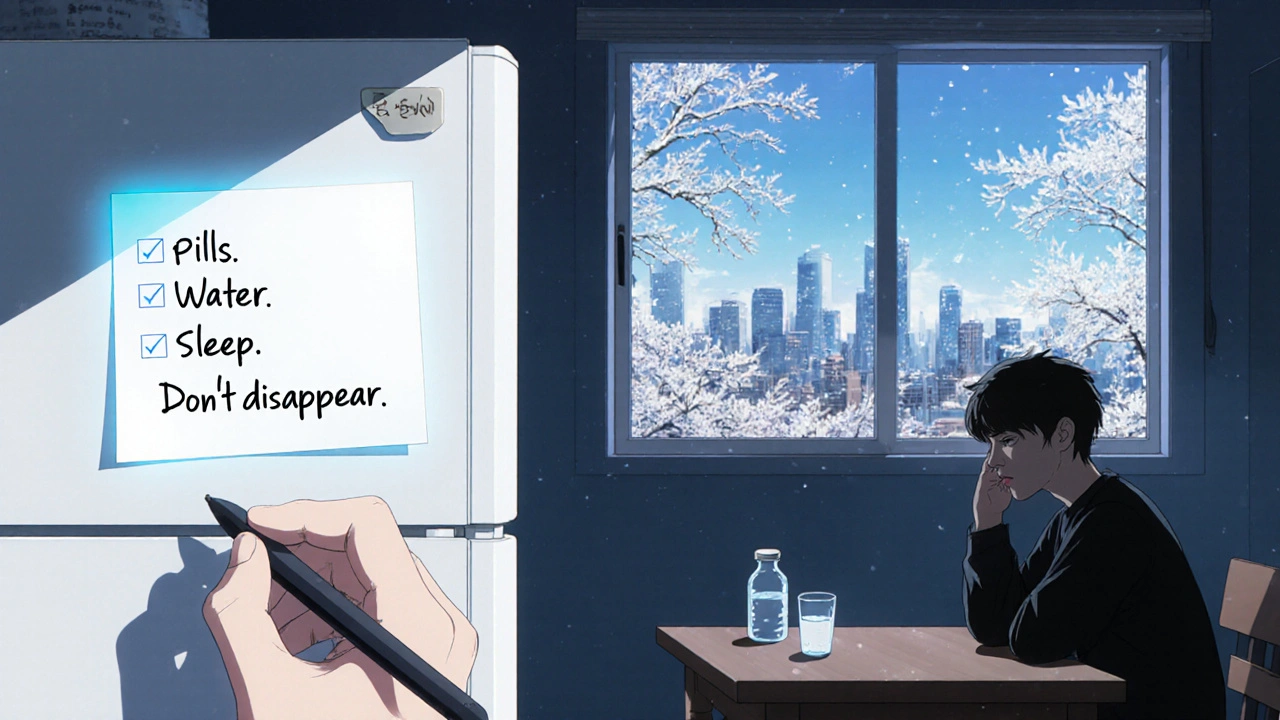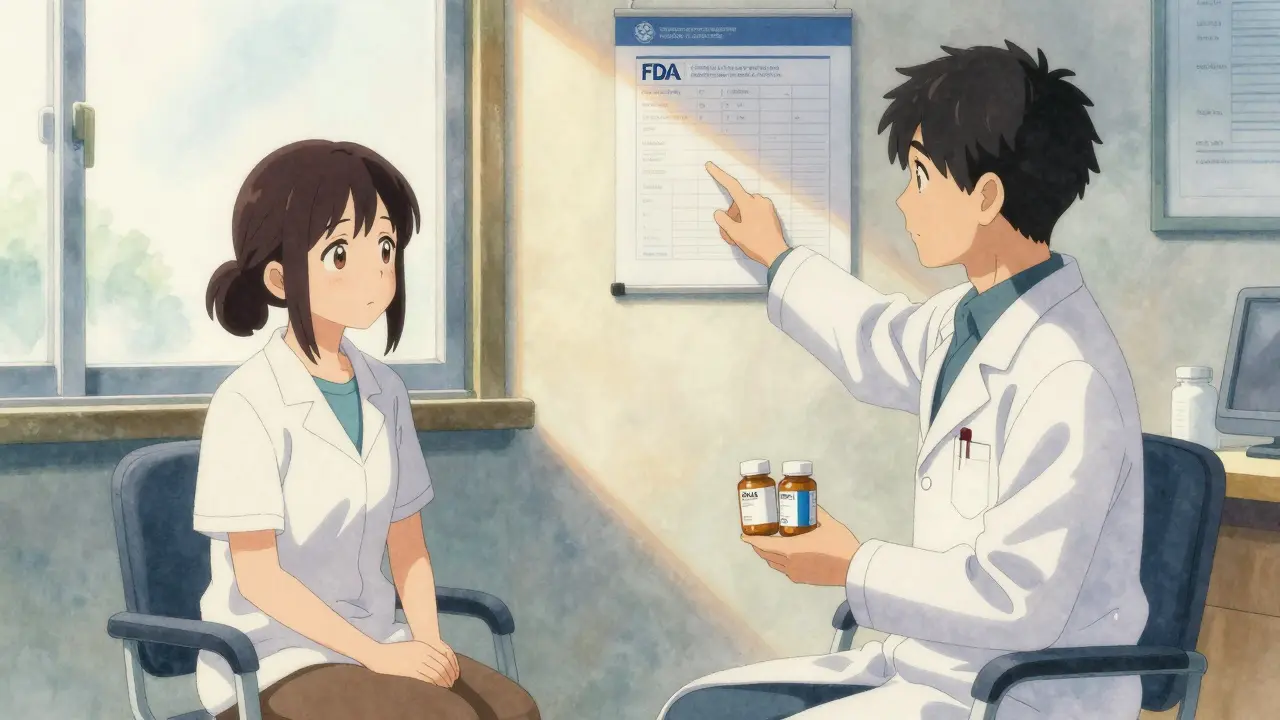When your life changes-whether it’s a new job, a breakup, moving cities, or even just a rough stretch at work-your medication routine often falls apart. Not because you’re lazy or careless, but because your brain is overwhelmed. You’re juggling too much, and your health routine becomes the first thing to slip. Research shows that during major life transitions, medication adherence drops by an average of 32%. That’s not a small number. It’s the difference between staying stable and ending up in the hospital.
Why Your Medication Routine Crashes During Stress
It’s not about willpower. It’s about structure. When your daily rhythm gets shaken, your brain doesn’t have the mental space to remember pills, refills, or appointments. A 2023 study found that 68% of chronic disease flare-ups happen within the first three months after a major life change. Why? Because your system was built for stability. When that’s gone, so is your routine. Think about it: if you take your blood pressure pill every morning after brushing your teeth, what happens when you move into a new apartment and your bathroom is being renovated? Or when you start a new job that requires you to leave the house at 5 a.m.? The cue is gone. The habit breaks. And before you know it, you’re skipping doses for days. The problem isn’t that you forgot. It’s that no one helped you adapt.The Three Lists Strategy: Focus on What You Can Control
One of the most effective tools for staying on track during chaos comes from psychology research. It’s called the Three Lists method. You make three simple lists:- Things you can control directly (27.3% of transition stress): Your pill organizer, your alarm, your pharmacy pickup schedule.
- Things you can influence (43.8%): Talking to your doctor about changing your pill schedule, asking a friend to remind you, setting up automatic refills.
- Things you can’t control (28.9%): Your boss’s schedule, traffic delays, your ex’s new partner.
Anchor Routines: Keep 3-5 Things the Same
You don’t need to rebuild your whole life. You just need to keep a few anchors steady. Research shows that maintaining just 3 to 5 daily activities during a transition reduces psychological distress by 23% and boosts medication adherence by over 31%. What are your anchors? They’re the non-negotiables that keep you grounded:- Drinking a glass of water right after waking up
- Taking your morning pill with breakfast
- Walking for 10 minutes after dinner
- Turning off your phone 30 minutes before bed
- Writing down one thing you’re grateful for before sleep

Forget Reminder Apps-Use Flexible Time-Blocking
Most people turn to medication reminder apps. And they work… until life gets messy. A 2023 study found that while apps improve adherence by 22.8% during normal times, that benefit drops to just 8.3% during big transitions. Why? Because rigid notifications don’t account for chaos. If you’re stuck in traffic, working overtime, or dealing with a sick kid, a 9 a.m. reminder is useless. Instead, try time-blocking. It’s not about scheduling pills at 8:15 a.m. It’s about assigning them to a daily activity:- “I take my pill after I brush my teeth.”
- “I refill my prescription the day after I pay my bills.”
- “I pack my travel meds when I pack my suitcase.”
Get Support-Don’t Go It Alone
Loneliness kills adherence. A 2022 study in Health Psychology found that people who felt supported during transitions had 34.2% better medication adherence-and their stress hormones dropped by 41.7%. That’s huge. You don’t need a therapist (though that helps). You need one person who knows your routine and checks in. That could be:- A sibling who texts you every Sunday: “Did you refill your meds this week?”
- A coworker who also takes daily pills-you swap stories over coffee.
- A pharmacist who remembers your name and asks, “How’s the new schedule working?”
Work With Your Doctor-Don’t Wait to Be Asked
Most doctors don’t ask about life changes unless you bring it up. But they should. In June 2023, the American College of Physicians officially recommended that providers screen for upcoming transitions-like moving, job changes, or divorce-during every chronic disease checkup. Don’t wait for them to notice. Say this next time you’re in: “I’m going through a big change soon. Can we talk about how to keep my meds on track?” Ask for:- A simplified regimen (fewer pills per day)
- Longer prescriptions (90-day fills to avoid frequent refills)
- A digital refill system tied to your pharmacy app
- A written transition plan-yes, ask for it on paper or email

Real Stories: What Actually Works
On Reddit’s r/ChronicIllness, users shared what saved them:- u/MedAdherenceWarrior: “I started my new job. My old routine was gone. I met with my doctor and broke my pill schedule into tiny steps: 1) Print new schedule, 2) Set up auto-refill, 3) Put pillbox by my coffee maker. Adherence jumped from 62% to 94% in 30 days.”
- u/TransitionStruggles: “After my divorce, I stopped all my meds for three months. No one asked. I felt invisible. Now I have a checklist I keep on my fridge. It says: ‘Pills. Water. Sleep. Don’t disappear.’”
What Doesn’t Work
Avoid these traps:- Waiting until you miss a dose to fix it. By then, the habit is broken.
- Trying to do everything perfectly. Perfection kills consistency.
- Believing you should be able to handle it alone. You’re not failing-you’re human.
- Using rigid alarms that don’t account for real life. Life doesn’t run on a spreadsheet.
Start Small. Start Now.
You don’t need a full plan. Just pick one thing:- Put your pill bottle next to your toothbrush.
- Text a friend: “I’m going through a big change. Can you check in on me every Friday?”
- Call your pharmacy and ask for a 90-day supply.
- Write down one anchor habit you’ll keep, no matter what.
Medication isn’t just a pill. It’s your way of saying: “I matter, even when everything else is falling apart.” Protect that. Even now. Even if you’re tired. Even if you’re scared. Your health isn’t a luxury. It’s the foundation.
Why do I keep forgetting my medication during big life changes?
Your brain relies on routines and cues to remember tasks. During major life changes-like moving, changing jobs, or ending a relationship-those cues disappear. Your daily rhythm gets disrupted, and your mind is overwhelmed with new stressors. This isn’t laziness or neglect-it’s a natural response to chaos. Research shows adherence drops by up to 32% during these times because your brain doesn’t have the mental bandwidth to maintain old habits without structure.
Are medication reminder apps effective during transitions?
They help during stable times, improving adherence by about 23%. But during major transitions-like relocating or starting a new job-their effectiveness drops to just 8%. Why? Because rigid, time-based alerts don’t adapt to unpredictable schedules. If you’re stuck in traffic or working late, a 9 a.m. reminder won’t help. Instead, link your medication to stable daily actions-like brushing your teeth or eating breakfast-so your habit survives even when your schedule doesn’t.
How can I get my doctor to help me with medication adherence during a transition?
Don’t wait for them to ask. Say directly: “I’m going through a big change soon and want to make sure I stay on track with my meds.” Ask for a transition plan: fewer pills per day, 90-day prescriptions, automatic refills, or a written checklist. Studies show patients who do this improve adherence from under 60% to nearly 90% within a month. Your doctor is there to support you-just give them the chance.
What’s the most important habit to keep during a life transition?
Keep 3 to 5 daily anchor activities the same-no matter what else changes. These could be drinking water first thing in the morning, taking your pill with breakfast, or walking after dinner. These anchors act as triggers for your medication habit. Research shows maintaining just these few routines reduces stress by 23% and improves adherence by over 31%. You don’t need to fix everything. Just hold onto these few things.
Can social support really help me take my meds more regularly?
Yes. People with strong social support during transitions have 34% better medication adherence and 42% lower stress hormone levels. You don’t need a therapist-just one person who checks in. A friend, sibling, or even your pharmacist can make a difference. Simply asking someone, “Can you remind me to refill my meds next week?” creates accountability. Studies show those with a support buddy are over three times more likely to stick to their regimen.
What should I avoid when trying to stay on track with my meds?
Avoid waiting until you miss a dose to fix things. Don’t try to be perfect-perfection leads to quitting. Don’t rely on rigid alarms that don’t adapt to real life. And don’t assume your doctor will notice your struggle. Most won’t unless you speak up. Also, avoid blaming yourself. Forgetting meds during stress isn’t weakness-it’s a sign your system needs adjustment, not punishment.



